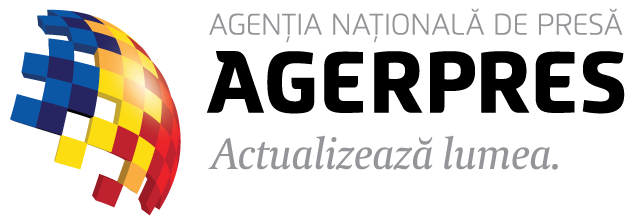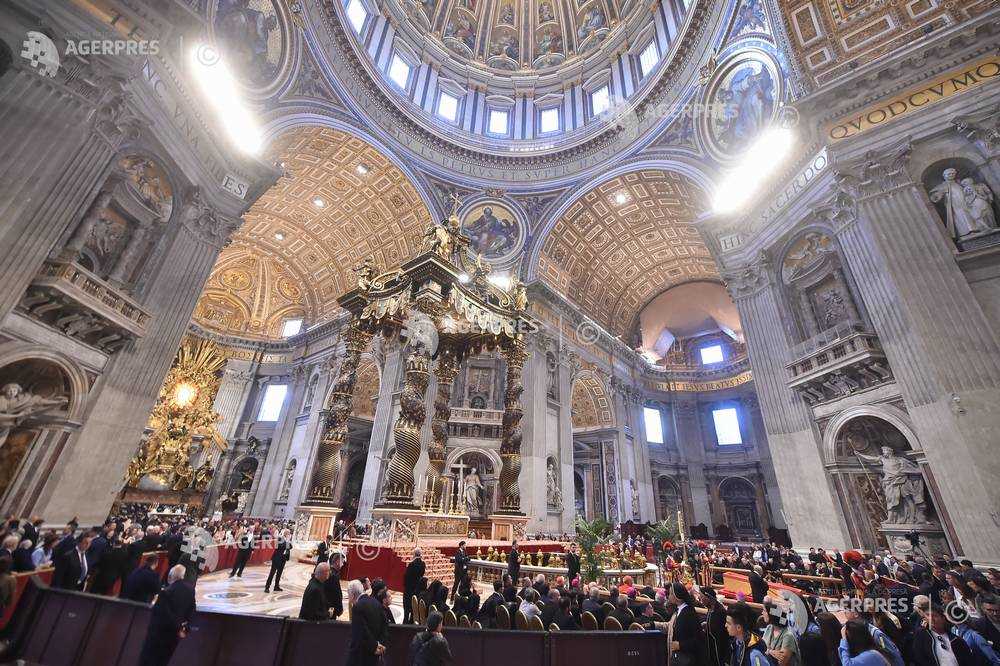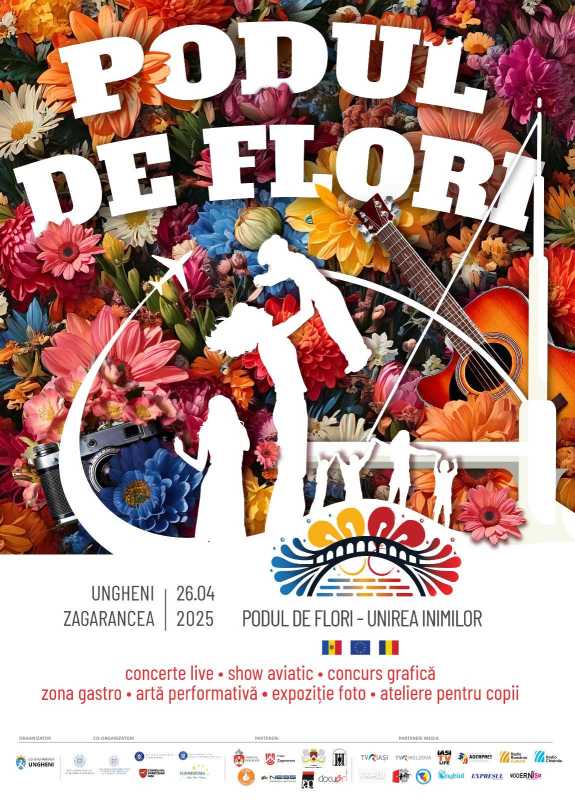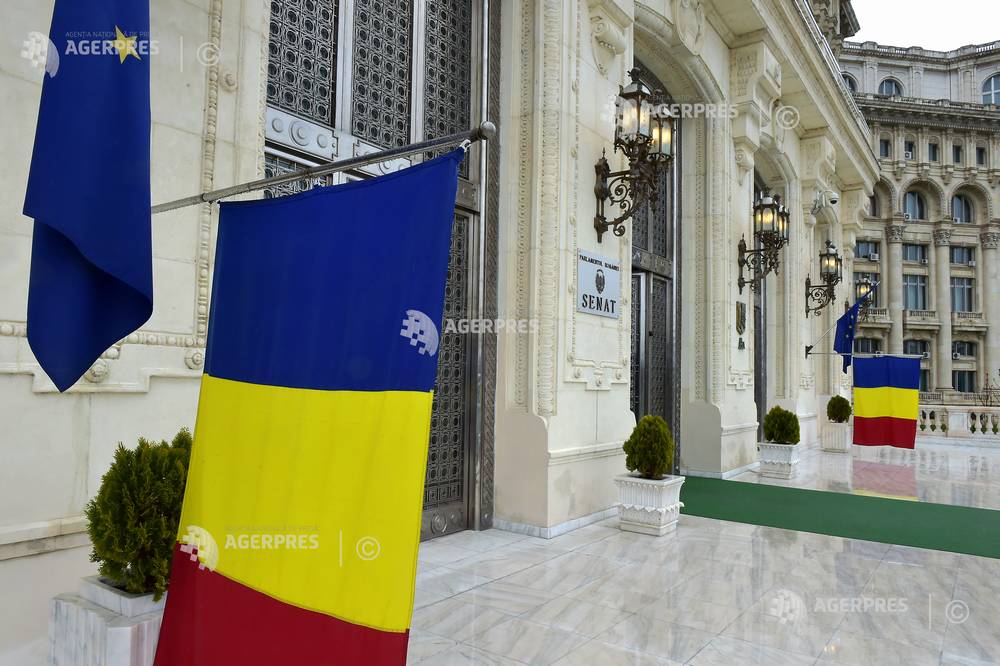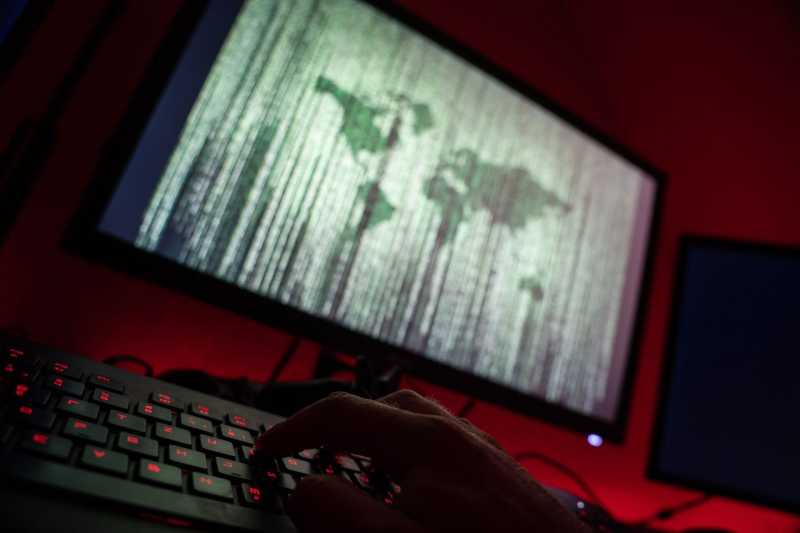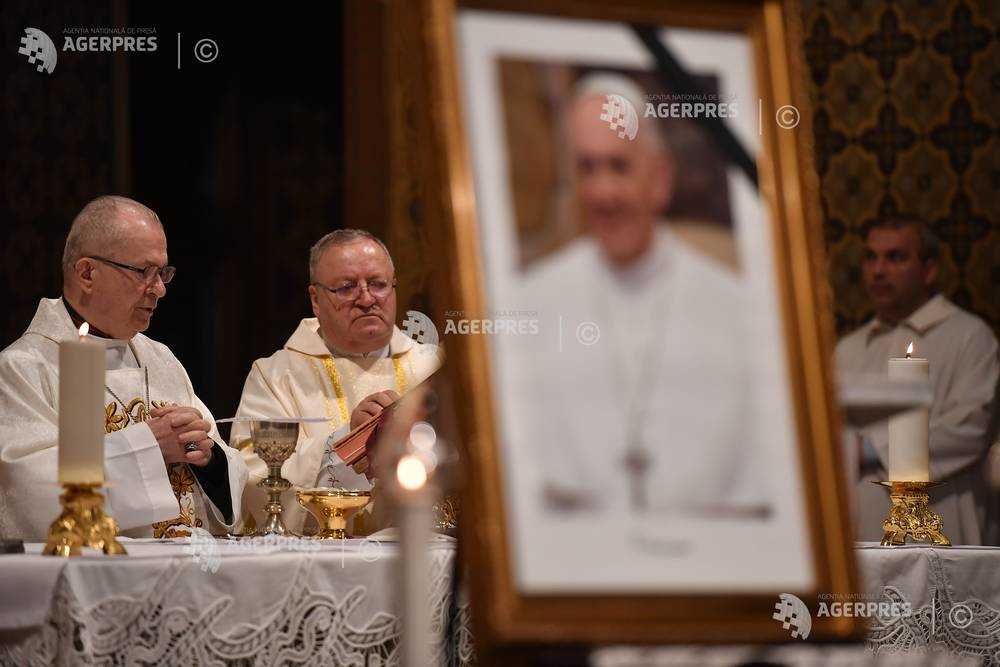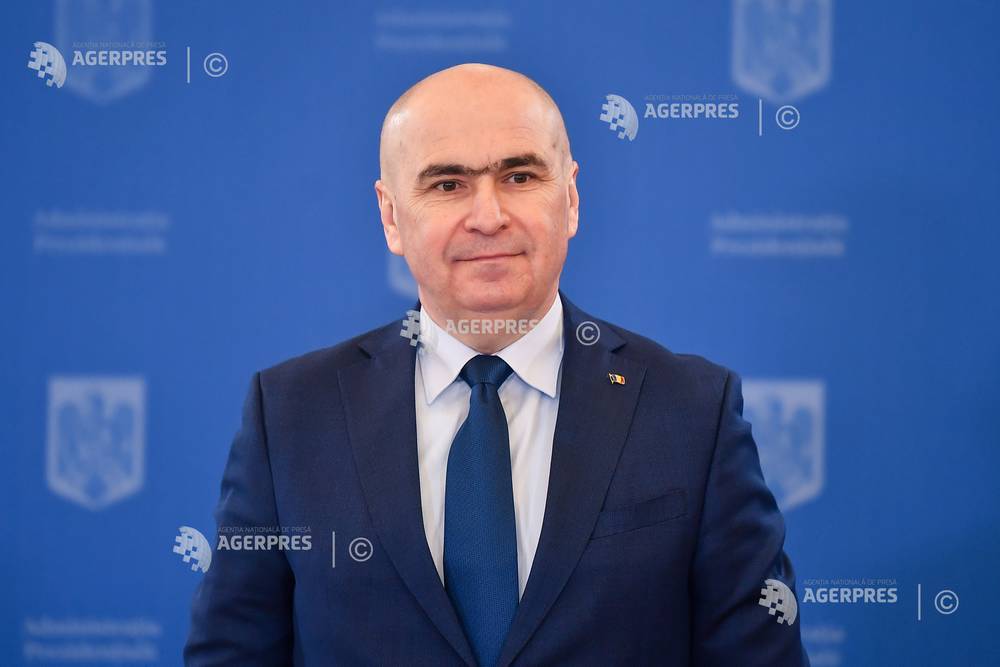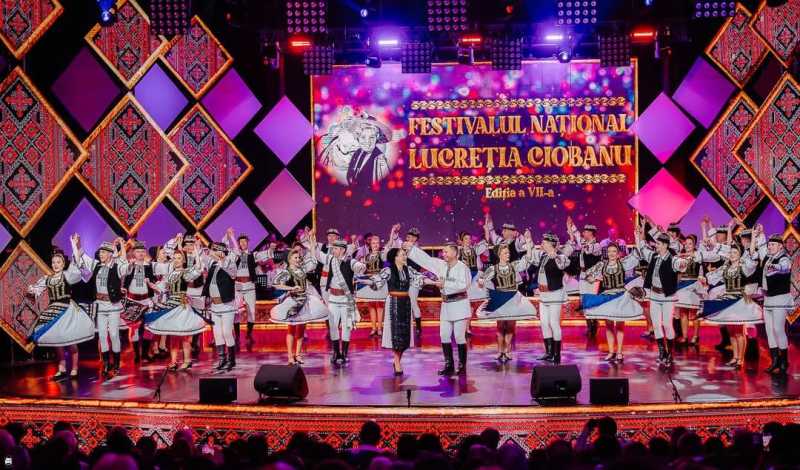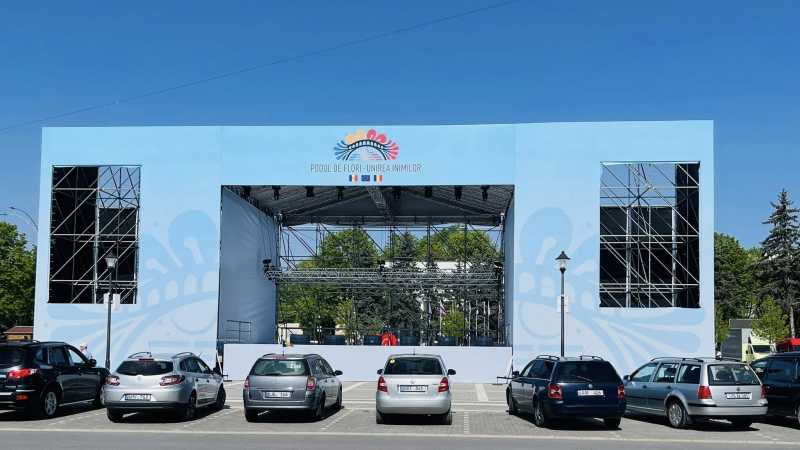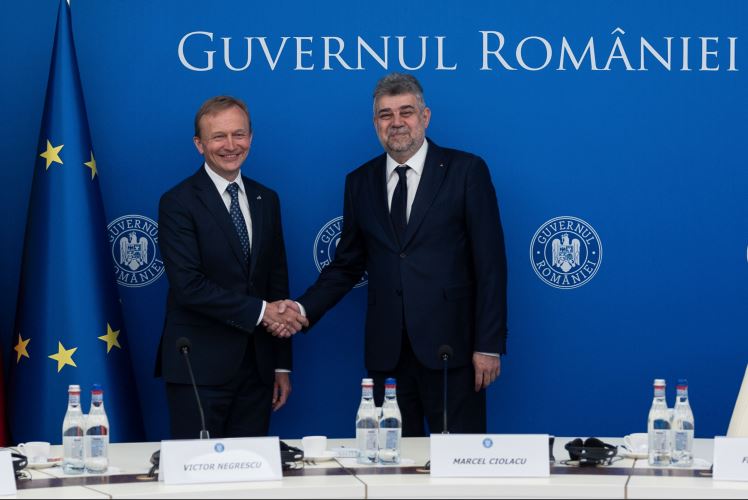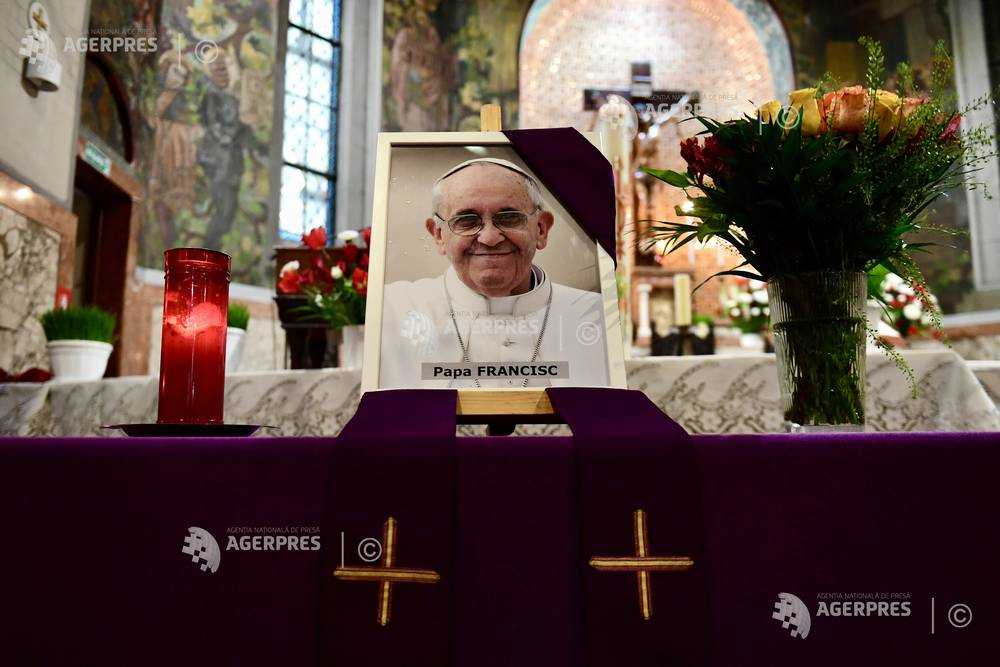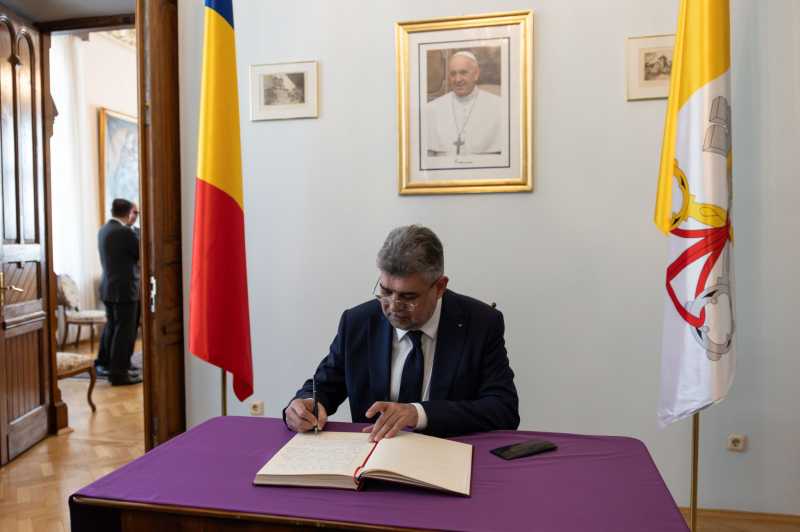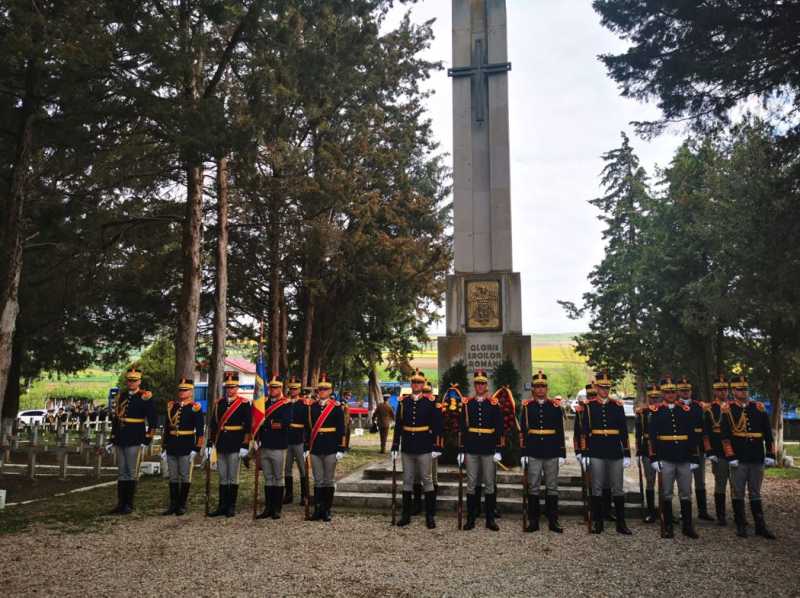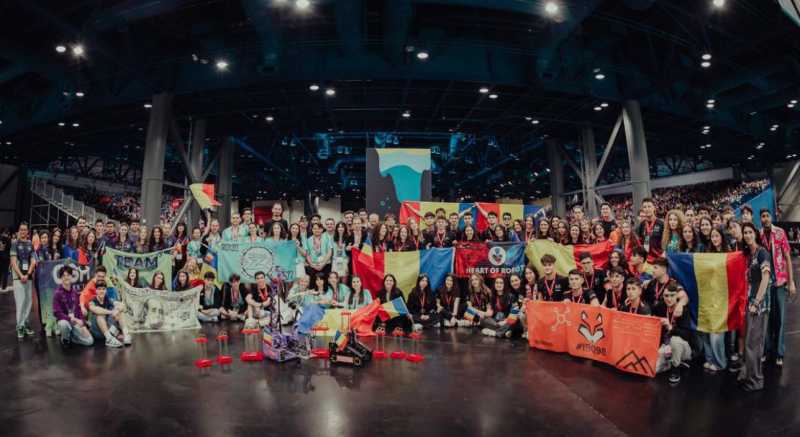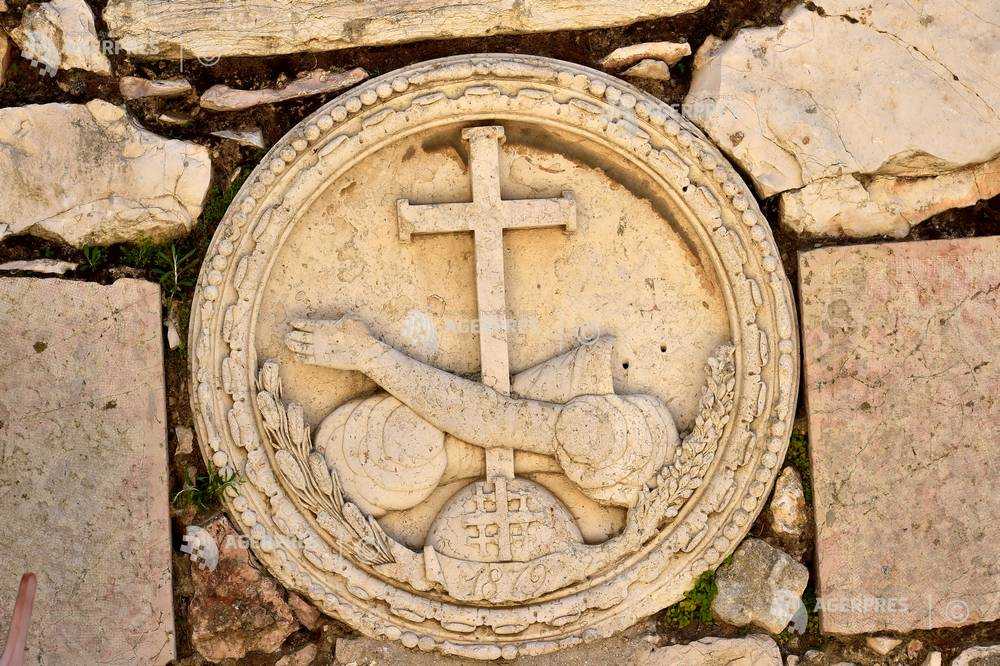DOCUMENTARY: Romanian Revolution of December '89

"The series of revolutions of 1989 fundamentally changed the political, economic, axiological and cultural map of the world. Triggered by a deep and widespread dissatisfaction with the ideological domination of Leninism, it allowed the rediscovery of democratic participation and civic engagement," political scientist Vladimir Tismaneanu wrote in his book "About 1989. The sinking of utopia" (Humanitas Publishing House, Bucharest, 2009). "The nature of the Romanian Revolution, including the use of violence and massacre, can be explained through the unrepentant Stalinist nature of the communist dictatorship. Through its radicalism and unlashed energies and the chance of revigorating political parties, market economic, free media and civil society, the Revolution represented an indisputable historical turn," Vladimir Tismaneanu emphasized in the above-mentioned work.
* * *
In 1989, Romania was the only former communist country in which the transition from totalitarianism to democracy was made through violence and the leaders of the old regime were executed. Between December 16 and 20, 1989, the so-called "Timisoara Revolution" took place, while December 21 is considered to be the first day of the Revolution in Bucharest. Protesters gathered near the Intercontinental Hotel in University Square downtown Bucharest and built a barricade in front of the intervention forces.
On December 20/21, 1989, the Municipal Committee of the Romanian Communist Party (PCR) decided to organize, in the Republic Square (Palace Square), in front of the headquarters of the Central Committee of the PCR, a large "popular rally" condemning the "hooligan actions" from Timisoara. At the party meeting, Nicolae Ceausescu proposed an increase in salaries and social aids, according to the volume "Romania. Data and facts. 20 (1989-2009).
Nicolae Ceausescu 's speech during the rally in front of the headquarters of the PCR Central Committee in Palace Square - December 21, 1989.
Photo: (c) MIRCEA HUDEK/ AGERPRES Historic Archive
Around 12.00, the big rally started in the Republic Square. An impressive number of banners with slogans condemning the protest rallies in Timisoara were handed out to the participants and solidarity was expressed with the party and state leadership, led by Nicolae Ceausescu.
The rally was broadcast live on radio and television, while from the balcony of the Central Committee of the PCR Ceausescu began a speech on the achievements of the "multilaterally developed socialist society" and on the benefits of the communist regime. The speech was soon interrupted by boos and whistles of the spontaneously formed groups of protesters. Panic ensued, and most of the protesters dispersed in the market.
At the same time, Elena Ceausescu made desperate attempts to reassure the participants. Panic spread fast and Nicolae Ceausescu left the balcony from which he spoke, and the radio and television transmission was interrupted. After a few moments, Nicolae Ceausescu reappeared on the balcony of the Central Committee and resumed his speech. Television and radio broadcasts were also resumed. In an act of desperation, Ceausescu promised "measures to increase the standard of living," including increasing the minimum salary by 200 lei per month and the child allowance by 30 and 50 lei in relation to the number of children and income.
For the first time in 24 years since he led the party, Ceausescu was booed during a speech.
The crowd that was gathered in the square dispersed taking up the surrounding streets and thousands of people protested for democracy and against dictatorship. The slogans that could be heard were: "Democracy!," "Freedom!," "Yesterday in Timisoara, today all over the country!," "Down with Ceausescu!." At 2.00 pm, downtown, the first armoured vehicles and the self-propelled amphibious vehicles appeared.
During the evening, the protesters, mostly young people, gathered near the Intercontinental Hotel in the University Square, where they built a barricade in front of the intervention forces. Law enforcement was ordered to "clean up the area." During the night, protesters from "Intercontinental" and the University Square were shot dead or wounded. Numerous protesters were also arrested and taken to Jilava Prison, near Bucharest.
Tens of thousands of people gathered in front of the PCR County Committee in Brasov, while several thousand protesters took to the streets in Sibiu, where Nicu Ceausescu, Nicolae Ceausescu's son, was the first secretary of the party's county organization.
* * *
In the early hours of December 22, 1989, the big factories in Bucharest ceased their activity. Massive groups of workers from Grivita Rosie, Vulcan, 23 August, Pipera, Republica, the Bucharest Machine Tools and Assembly Unit Enterprise were heading downtown.
Nicolae Ceausescu announced the suicide of General Vasile Milea, calling him a traitor and accusing him of "sabotaging the application of measures and working closely with foreigners." At 10.59 am, the radio station announced the establishment, through a presidential decree, of the "state of necessity" on the entire Romanian territory.
Thousands of citizens were heading downtown. This was the moment when the mechanized troops from Bucharest left their positions on the streets near the headquarters of the Central Committee and headed towards their military units. Left without a commander, the army accepted the first withdrawal signal given by General Victor Atanasie Stanculescu, the first deputy minister of defence.
Hundreds of thousands of protesters chanted "The army is with us!" and entered the Republica Square. Some of the protesters forced their way in and entered the headquarters of the Central Committee of the Communist Party. At 12.06 pm, Nicolae and Elena Ceausescu, accompanied by Manea Manescu, Emil Bobu, General Marin Neagoe and two bodyguards left the building of the Central Committee, aboard a helicopter. At around 3.00 pm, they were arrested near the town of Targoviste, 80 km north of Bucharest, according to the volume "Romania 1989-2005. A chronological history."
Around 1.00 pm, the headquarters of the Romanian Radio and Television were occupied by protestors, the radio station broadcasting the events live. The television began its show with a group of protesters on the set, led by actor Ion Caramitru and poet Mircea Dinescu.
Between 2.15 and 4.00 pm, army units were sent to provide security for important objectives in the Capital City: Romanian Television, Casa Scanteii, Central Committee headquarters, National Bank of Romania, the Radio Station, the Telephone Palace, other institutions and units of strategic interest. According to the orders received, the armoured vehicles flew the tricolor flag, and the military wore tricolor armbands.
During the evening, the Provisional Council of the National Salvation Front was established, which took over the entire power in the state, with the aim of "establishing democracy, freedom and dignity of the Romanian people." It had a temporary structure consisting of 39 people, including Ana Blandiana, Doina Cornea, Dumitru Mazilu, Mircea Dinescu, Laszlo Tokes, Dan Desliu, Petre Roman, Ion Caramitru, Sergiu Nicolaescu, Dan Martian, Cazimir Ionescu, Domokos Geza and Ion Iliescu. The Provisional Council of the National Salvation Front addressed, in the evening, a "press release to the country," announcing the dissolution of all power structures of the communist regime and a programme aimed at democratizing political and social life in Romania: abandoning the leading role in the hands of a single political party and establishing political pluralism; organizing free elections; separation of state powers; drafting a new Constitution; promoting free initiative in the economy; full respect for human rights and freedoms, etc.
During the night of December 22-23, shootings began in several places in Bucharest, registering casualties among the army and the population. The National Television headquarters was attacked and the broadcast interrupted for a short time.
In the crossed gunfire in the Republica Square, as there were people shooting from the building of the former Royal Palace, which housed the Art Museum, targeting the CC building of the PCR and the crowd in the square, the building of the Central University Library caught fire.
The Ceausescus, detained by the militia, were transferred from the headquarters of the Militia Inspectorate to the Military Unit 01417 in Targoviste.
***
Revolutionary actions take place in the main urban centers of the country, consisting mainly of the takeover by the groups of revolutionaries, constituted ad-hoc, of the power at local level; they were joined by military units from all over the country.
The Council of the National Salvation Front (CFSN) appointed General Nicolae Militaru as Minister of National Defense.
According to the volume "History of Romania in data" - Encyclopedic Publishing House, 2003, Ion Iliescu presented to the radio and television stations a piece of information from the CFSN, which shows that priority was given to "coordinated actions of fighting against the terrorists, which resulted in victims in the lines of the military," adding that "all military units and the vast majority of militia and internal units are acting unitarily against terrorists." He also announces the arrest of Nicolae and Elena Ceausescu, Ilie and Nicu Ceausescu, Dinca, Postelnicu, Bobu and others, and the release of all political detainees.
On December 24, 1989, the CFSN adopted exceptional measures: complete ceasefire throughout the country; handing over the weapons in the possession of civilians to the military units; integration of the units of the Ministry of Interior in the structure of the Ministry of National Defense.
The capital looked like a city under military siege: gunshots are still heard, tanks patrol the streets; road blocks are formed at intersections and near civilian targets, and civilians and military control vehicles.
Being Christmas Eve, radio and television stations broadcast, for the first time in more than four decades, carols and religious songs.
On Christmas Day, on December 25, 1989, the National Romanian Television - TVR announced that Elena and Nicolae Ceausescu had been tried by an Extraordinary Military Tribunal.
In Targoviste, inside a military unit, there was the trial filed by the Romanian state against Nicolae Ceausescu, President of Romania (1974-1989), and Elena Ceausescu for the crimes of genocide, undermining state power, undermining the national economy, the crime of destruction of public goods through the destruction and damage of some buildings, explosions in cities, etc., the attempt to flee the country on the basis of funds of over one billion dollars deposited with foreign banks. Following the sentence, the two are executed by shooting in the afternoon of the same day.
* * *
On December 26, 1989, Petre Roman was appointed Prime Minister of the Romanian Government by decree of the CFSN.
Romanian Revolution of 1989.
Photo: (c) ILIE BUMBAC/ AGERPRES Historic Archive
Laws, decrees, acts and norms of the old regime were repealed. Extraordinary Military Tribunals were established to judge, in an emergency procedure, cases of terrorism, and sentences were to be executed immediately. A deadline is granted, respectively December 28, at 17.00 - for the deposit of weapons.
The CFSN Decree on the transition to the Ministry of National Defense of the Department of State Security and other bodies subordinated to the Ministry of Interior was adopted, as well as the Decree-Law repealing all decrees granting titles and orders of Romania to Nicolae Ceausescu and Elena Ceausescu.
Until the end of 1989, a series of political-administrative actions of the new power took place. Thus, on December 27, 1989, the Executive Bureau of the CFSN was elected, composed of: Ion Iliescu - president, Dumitru Mazilu - first vice-president, vice-presidents - Cazimir lonescu, Kiraly Karoly; secretary - Dan Martian; members: Bogdan Teodoriu, Vasile Neacsa, Silviu Brucan, Gheorghe Manole, Ion Caramitru, Nicolae Radu.
On December 28, 1989, firearm shootings ceased following the exceptional measures taken by the CFSN, and Nicolae and Elena Ceausescu are secretly buried at the Ghencea Civil Cemetery in Bucharest.
On December 31, 1989, the president of CFSN, Ion Iliescu, on the occasion of his New Year's speech, announced: abolition of the death penalty, cessation of food exports, imports of consumer goods, cessation of costly investment works (Danube-Bucharest Canal, Danube-Jiu-Arges hydrotechnical system, free zone in Constanta port, Anina thermal power plant, People's House etc); granting plots of land for personal use of up to 5,000 sqm to cooperating members; the declaration of the land afferent to the dwelling house, to the household annexes and to the surrounding court in the co-operative areas private property of the owners, with the right of alienation etc.
AGERPRES (RO - Documentation - Cristian Anghelache, Photo archive editors: Mihaela Tufega, Elena Balan, Florin Vladescu; Vlad Ruseanu, editor: Cerasela Badita; EN - authors: Cristina Zaharia, Bogdan Gabaroi, editor: Adina Panaitescu)
* The material is based on the AGERPRES news archive (1989 period), as well as chronologies and specialized studies on the Romanian Revolution of 1989: "Romania's History in data" - Enciclopedica Publishing House, 2003, "Romania 1989-2005. A chronological history," by Stan Stoica - Meronia Publishing House, 2005 and the volume "Romania. Data and facts. 20 (1989-2009), edited by the National News Agency Agerpres (2010)
The content of the www.agerpres.ro website has the exclusive purpose of public informing.
All the information published on this website by AGERPRES is protected by relevant legal dispositions.
It is forbidden to copy, reproduce, recompile, decompile, distribute, publish, display, modify, create derived components or products or full services, as well as any exploitation of the site's content.
Details in the section Terms of Use. If you are interested in picking up AGERPRES news items, please contact the Marketing Department – [email protected].
The use of the Comments section entails your obligation to respect the AGERPRES terms and conditions in regards to the publishing of comments on the www.agerpres.ro.
Other news in category
Pope Francis funeral/Medal of Pope's 2019 visit to Romania placed in his coffin
The medal of Pope Francis' 2019 visit to Romania was placed beside him during the coffin-closing and sealing ceremony held on Friday evening. The ceremony included the impressive ritual of the covering of Francis' face with a white silk cloth. A bag containing coins and medals minted during his pontificate was placed in the coffin, including the medal
Groundbreaking ceremony for Prut River 'Flower Bridge', with Romanian and Moldovan authorities attending
Romanian and Moldovan officials are to attend on Saturday the groundbreaking ceremony for the first motorway road bridge across the Prut River in the last 60 years - the Ungheni Bridge, an event symbolically called the Flower Bridge Festival. The new bridge will connect the commune of Zagarancea in the Republic of Moldova's Ungheni District with the Golaes
Pope Francis funeral/National mourning day for the late pontiff, Romanian flag flown at half-mast
Romania observes on Saturday a day of mourning in honor of Pope Francis, following a government decision to this effect. 'We approve a day of national mourning in Romania in memory of His Holiness Pope Francis, to be observed on Saturday, April 26, the very day of his funeral at the Vatican. It is a decision that shows our deep respect for his complete ope
EU on high alert over Russia's hybrid offensive on Europe's democracies (enr)
Hybrid threats, in particular from Russia, have flooded Europe in the wake of its invasion of Ukraine. EU officials and intelligence reports warn of a surge in attacks designed to destabilise European democracies - with national elections, infrastructure, and public trust in the crosshairs. The European Union has become increasingly concerned about Russian int
Romania to remember Pope Francis on April 26, day of national mourning
The Romanian government on April 24, 2025, approved declaring April 26, 2025, a day of mourning in Romania in memory of Pope Francis, on the very day of the pope's funeral at the Vatican. 'A spiritual and moral leader, Pope Francis stood out for his active involvement in the life of contemporary society, a profound personality, also appreciated by the
President Bolojan: Marking 20 years since signing of EU Accession Treaty, opportunity to focus on consolidating European path
Interim President Ilie Bolojan conveyed a message on Friday, on the 20th anniversary of the signing of the Treaty of Accession of Romania to the European Union. 'We are marking today 20 years since the signing of the Treaty of Accession of Romania to the European Union on April 25, 2005, a key moment that paved the way for our integration, which was finali
'Cindrelul - Junii Sibiului' folk ensemble to represent Romania at EuropaFest in Germany
According to a decision adopted on Thursday by the Sibiu County Council, the professional folk ensemble 'Cindrelul - Junii Sibiului' will represent Romania at the EuropaFest cultural festival running May 17 - 20 in the German city of Landshut. 'The artists will present folk dances representative of Romania's major ethnographic areas and of Sibi
Romania and Moldova to launch construction of first road bridge over Prut in last six decades
The Republic of Moldova and Romania will jointly mark, on Saturday, the launch of the construction of the first motorway bridge over the Prut River in the last six decades - the Ungheni Bridge, through a symbolic event generically called the 'Flower Bridge' Festival. The bridge will connect the Zagarancea locality in Ungheni district (the Republic of M
Cohesion and common agricultural policies, of major interest, says PM Ciolacu at meeting with Commissioner Serafin
Romania will play an active and constructive role in the consultations for the post 2027 Multiannual Financial Framework so that it results in a balanced proposal, able to respond to the objectives of the European Union and to the political, economic and security changes, said Prime Minister Marcel Ciolacu, at the meeting with the delegation led by the European Commissioner
Gov't approves day of national mourning in Romania in memory of Pope Francis
Prime Minister Marcel Ciolacu has announced that Saturday April 26 will be a day of national mourning in Romania in memory of Pope Francis, saying that this is a 'decision that shows deep respect for the total openness and warmth permanently shown to Romanians.' 'We approve a day of national mourning in Romania in memory of Pope Francis, on Saturda
Public invited to see election technology at Cotroceni Presidential Palace on weekend
The gates to the Cotroceni Presidential Palace will open to the public again, and this time it is the turn of the Special Telecommunications Service (STS) to delight visitors of all ages. From Friday to Sunday, 10:00hrs-18:00hrs, STS will conduct interactive activities for children and adults alike, an exhibition of special vehicles and special telecommunicati
PM Ciolacu signs condolence book at Apostolic Nunciature to Romania
Bucharest, April 24 /Agerpres/ - Prime Minister Marcel Ciolacu wrote a message on Thursday morning in a condolence book opened at the Apostolic Nunciature to Romania in memory of the Pope Francis. He spent a few minutes in the embassy headquarters. A condolence book for officials is open inside the diplomatic mission, and all those who wish to c
Commemorative march in footsteps of Romanian heroes fallen on the Western Front arrives in Oarba de Mures
The commemorative march titled 'In the footsteps of the Romanian heroes fallen on the Western Front - Hungary, Slovakia, Czech Republic', organized by the Ministry of National Defence, through the National Office for the Cult of Heroes, on the 80th anniversary of the end of World War II, arrived on Wednesday at the Heroes Cemetery in Oarba de Mures, where several tho
Romania reaches podium at the 2025 FIRST Championship robotics competition
Romanian teams climbed the podium at the 2025 FIRST Championship robotics competition, intended for high school students, which took place between April 16 and 19 in Houston, USA, informs the Ministry of Education and Research. Remarkable results were achieved by the CSH Timisoara & Eastern Foxes Ploiesti team - an exceptional alliance, which ranked 3rd gl
Over 1 million Romanians celebrate their name day on St. George
Over 1 million Romanians celebrate their name day of on Saint George the Martyr [Sf. Gheorghe in Romanian - editor's note] on Wednesday, April 23. According to the General Directorate of Personal Records, the most common male names are: Gheorghe (402,099); George (159,761); Georgian (29,408); Gheorghita (21,434); Georgel (12,285); Gigi (8,659); Gigel (5,82
